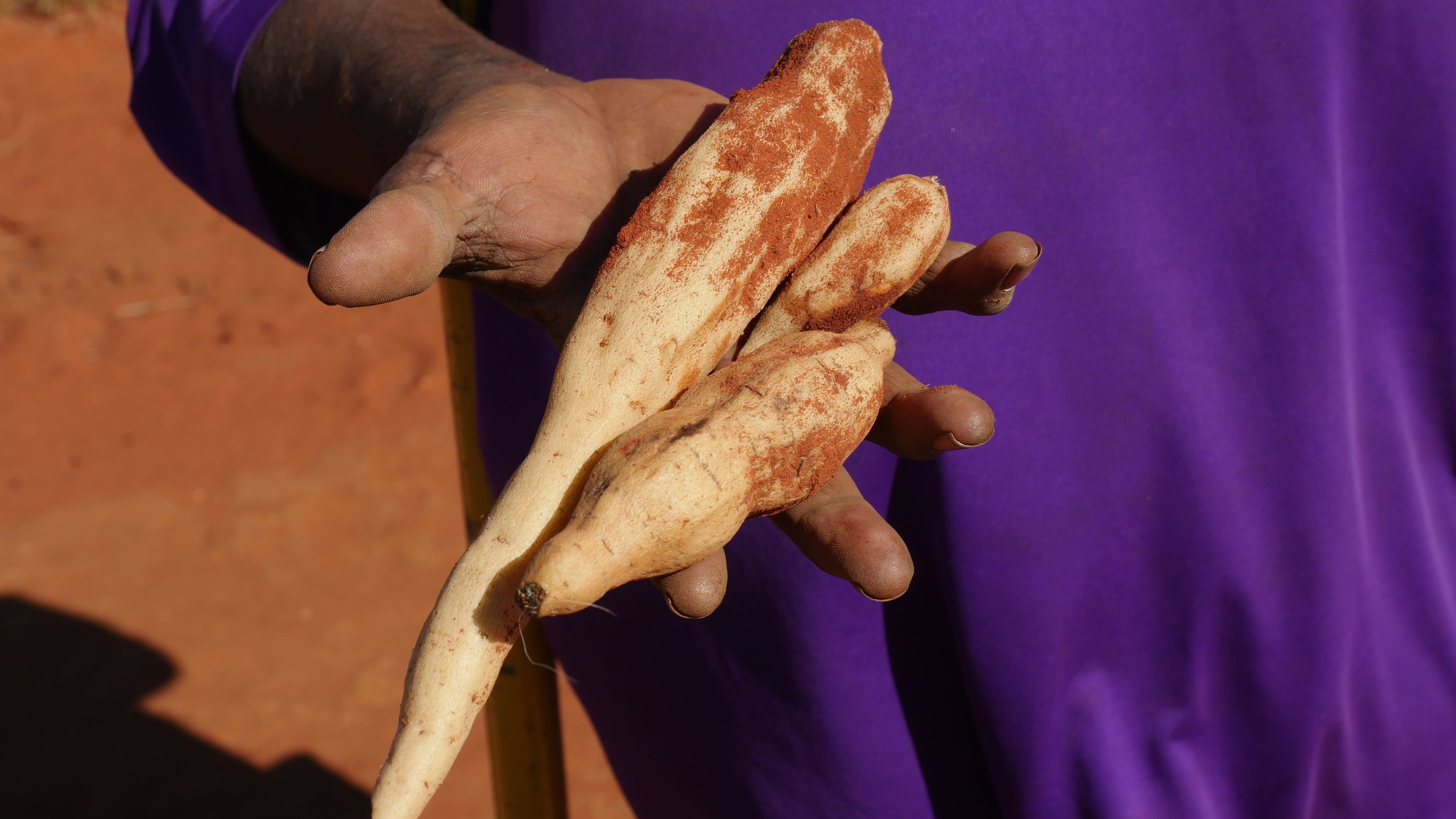
The first farmers
When I first started buying bush foods, I was really interested to find out more about the women who wild harvest these beautiful products. Growing up myself in the bush, living off these bush foods, I wanted to link up with these women who had such a rich knowledge about plants and stories and Country and the environment. While working with Desert Knowledge Australia, I was looking at the potential of bush foods in the Central Desert region and building economies for remote Indigenous people in communities and the collection of a natural resource. This really got things rolling for me.
I started to think about the value chain and how far apart the manufacturers were from these women who were the primary producers. They are not farmers as we might think of ‘farmers’, they might not have tractors and own a farm and massive sheds, or have a business name, but they were trading in the old ways, required for survival in the desert. We are so lucky to have these women who have this absolute strength of knowledge about plants and Country and, that now, this knowledge is something they can use to produce an economy they and their communities can benefit from. Harvesting is something the women thoroughly enjoy.
When you look at the environment they are working in, it is such a stark contrast from where these products are ending up in the city - on supermarket chain shelves across Australia or in gourmet restaurants. We really need to make these women visible in the industry. When meeting with manufacturers or industry people, I always share about these amazing women who are working really hard to bring this wonderful organic seed and fruit, all of which still have a strong story line and song connected to it. Each seed and fruit is enriched with a song and story that connects them back to their Country and their people.
Sometimes it’s hard for people to understand the rich history of each seed and product, it’s hard for people to imagine even in their wildest dreams how the seeds could have that connection. But I want to bring this to light. I hope we can go even further down the track to bring these women into the light. They have so much knowledge. We respect this knowledge and we want the women and the knowledge they have to be dealt with in an ethical way and for the women to be paid a fair price for the work that they do.
Some day in the future, when we set up a foundation, we hope to supply things that they need: harvesting trailers, vehicles, cool working areas and, if the women agree, machinery to support the women and create employment. At the moment they are dead set against using machinery, they want to do things the old ways. But you never know, maybe the new generation will look at that, making sure the songs and stories are still part of the learning for the young people. The women enrich the industry, they bring strength and history to the plants that are being used in Australia’s ‘new’ cuisine, which is really an ancient cuisine.
It is exciting, and we can be proud that we have our own food history.
You can’t have the food without the people, bush food is nothing without the people. The women were the main source of the product for the industry 20 or 30 years ago. We have to really thank them for that and being part of the growth of the industry.
‘Farming’ is not really how Indigenous people think of food, having things in a line. Often people see things growing on Country and think ‘how can you get enough?’ But if you have enough people involved in pockets of country, a tonne here and a tonne there, and put that together in a pool you have the type of yield that people are expecting you to supply while also benefiting a wide range of people and effecting their lives in a positive way. That’s what I hope happens in the future.
Alparra Bush Food Meeting 2017
Ethical Procurement of Bush Foods
If you are interested in reading more about ethical harvesting and procurement of bush food, we suggest you read the following PhD paper and adopt it’s principles, which we are proud to have done here at Kungkas Can Cook.
“These women are shining lights, they are our Professors of the desert!”
